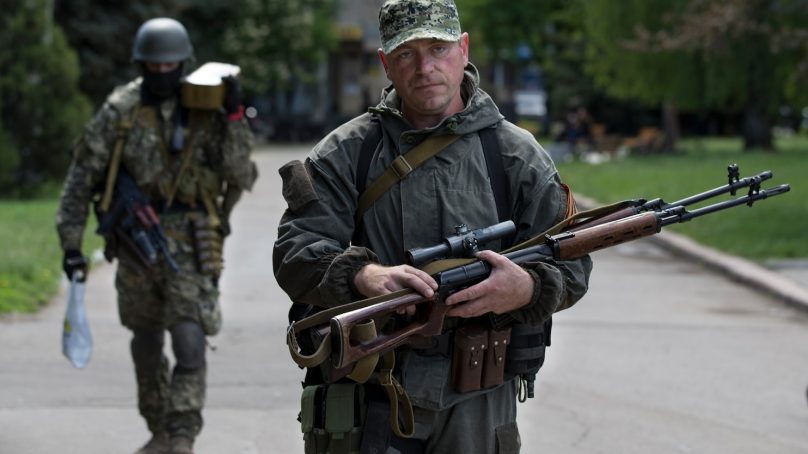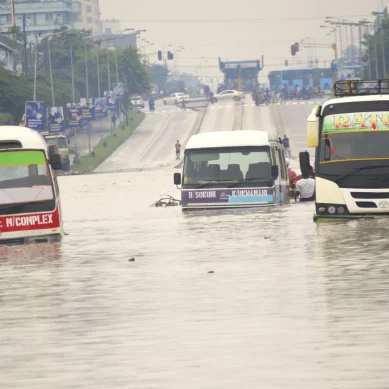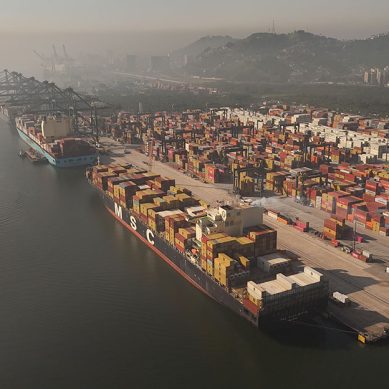
It is perhaps a sign of restraint that the Biden administration has so publicly specified just what weaponry it’s providing to Ukraine and which other countries it’s offering assistance to in the name of security concerns over the war.
And in making decisions about which munitions and armaments to offer, the administration has insisted on deliberation and process rather than quick, ad-hoc acts. Still, as the Global War on Terror (GWOT) taught us, mission creep is a danger and, as Putin’s Russia continues to expand its war in Ukraine, it’s important to keep a watchful eye on our expanding involvement, too.
Notably, the war has been defined by Russia’s escalating abuses of international law and human rights. To begin with, that country violated international law with its unprovoked invasion, an act of straightforward aggression.
Since then, reports of atrocities have mounted. An Independent International Commission of Inquiry on Ukraine issued a report last month to the UN’s Commissioner for Human Rights citing the use of explosives in civilian areas; evidence of torture, rape and brutal executions; and the intentionally cruel treatment of those in custody.
The massacre of civilians in the Ukrainian towns of Bucha and Izyum signalled Russia’s intent to continue its gruesome violations of the laws of war despite Ukrainian President Volodymyr Zelensky’s appeal to the UN for accountability.
That this is the road to lasting problems and an escalating threat environment is a lesson this country should have learned from its own war on terror in this century. The atrocities carried out by terrorist groups, including 9/11, led top officials in the Bush administration to calculate that, given the threat facing the country, it would be legitimate, even imperative, to ignore both domestic and international legal restraints.
The greatest but hardly the only example of this was the willingness of the Central Intelligence Agency to use torture, which it relabelled “enhanced interrogation techniques,” including waterboarding, exposure to extreme cold, sleep deprivation and painful, prolonged forms of shackling at CIA black sites scattered around the world. That brutal program was finally laid out in 2014 in a nearly 600-page executive summary of a Senate investigation.
Other illegal actions taken during the war on terror included setting up Guantánamo offshore of American justice and the Bush administration’s decision to invade Iraq based on a lie: that autocrat Saddam Hussein possessed weapons of mass destruction.
When it comes to Ukraine, the war-on-terror experience should remind us of the importance of restraint and lawfulness, no matter the nature of the Russian threat or the cruel acts Putin has countenanced.
“Russian forces were likely responsible for most casualties, but so too Ukrainian troops – albeit to a far lesser extent,” the US commissioner for human rights said in a video message last spring. In August, Amnesty International issued a report which held that “Ukrainian forces have put civilians in harm’s way by establishing bases and operating weapons systems in populated residential areas, including in schools and hospitals.”
Despite Vladimir Putin’s predictions that the war would end quickly with a Russian triumph and despite his continuing escalation of it, there has been no dearth of scenarios for such an ending. Early on, observers saw the possibility of a negotiated peace in which Ukraine would agree not to seek future membership in NATO, while Russia withdrew its troops and dropped its claims to Ukrainian territory (Crimea excepted).
Soon thereafter, another scenario forecast “a new iron curtain” after Russian gains in eastern and southern Ukraine left “two antagonistic blocs staring each other down over a lengthy militarized border.” Others have predicted endless further escalation, including a possible Russian tactical nuclear strike in that country causing the West to retreat — or counter with its own nuclear gesture.
Only recently, almost eight months into the war, 66 nations at the UN General Assembly called for its end, while even retired American Admiral Mike Mullen, the former chairman of the Joint Chiefs of Staff, told ABC’s George Stephanopoulos, “I think we need to back off [the war] a little bit and do everything we possibly can to try to get to the table to resolve this thing.” Others agree that the conflict should be ended sooner rather than later.
And for good reason! This country’s war on terror should be an apt reminder that planning for an ending is imperative, sooner rather than later. From the beginning, you might say, the forever war had no sense of an ending, since Congress’s authorisation for the use of force lacked not only geographical but temporal limits of any sort.
There was, in fact, no sense of what an end to hostilities might involve. Not even the killing of Osama bin Laden, the leader of al-Qaeda, in 2011 was seen as ending anything, nor was the death of autocrat Saddam Hussein imagined as a conclusion of that American war. To this day, that 2001 authorization for war remains in place and one of the main symbols of the excesses of the war – Guantánamo Bay – remains open.
Right now, despite any calls by former warriors like Mullen or diplomats for an end to the war in Ukraine, it’s proving a distinctly elusive proposition not just for Vladimir Putin but for the US and its NATO allies as well. As a senior administration official told the Washington Post recently, speaking of Putin’s threat to use nuclear weapons and his draft of new Russian conscripts, “It’s definitely a sign that he’s doubling down, that we’re not close to the end, and not close to negotiations.”
In a speech delivered at the UN in late September, Secretary of State Antony Blinken caught the forever-war mood of the moment on all sides by expressing doubts about diplomacy as a cure-all for such a war. “As President Zelensky has said repeatedly,” Blinken told the Security Council, “diplomacy is the only way to end this war.
But diplomacy cannot and must not be used as a cudgel to impose on Ukraine a settlement that cuts against the UN Charter, or rewards Russia for violating it.”
Given the lessons of the war on terror, casting doubt on the viability of future negotiations risks setting the stage for never-ending warfare of a distinctly unpredictable sort.
although the war in Ukraine is taking place in a different context than the war on terror, with a different set of interests at stake and without the non-state actors of that American conflict, the reality is that it should have yielded instructive lessons for both sides.
After all, America’s forever war harmed the fabric of our political life in ways almost too numerous to name, many of them related to the ever-expansive, extra-legal, never-ending nature of that conflict. So, imagine what this war could do to Russia, to Ukraine, and to our world.
The war in Ukraine offers Washington an opportunity to push the international community to choose a new scenario rather than one that will expand into a frighteningly unknown future. It gives the Biden administration a chance to choose law over lawlessness and emphasize a diplomatic resolution to that still-escalating crisis.
This time around, the need to exercise restraint, caution, and a deep respect for the law, while envisioning how the hostilities might actually end, could not be more important. The world of our children lies in the balance.
- A TomDespatch report / By Karen J. Greenberg











